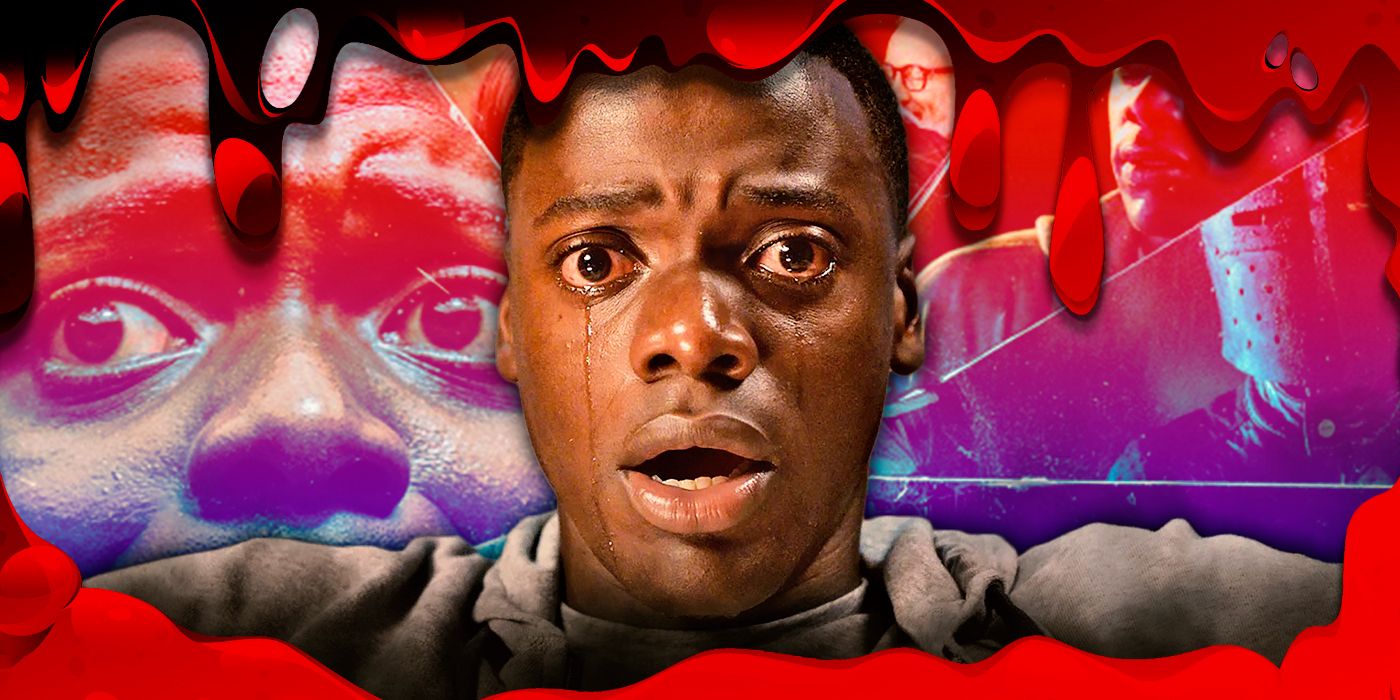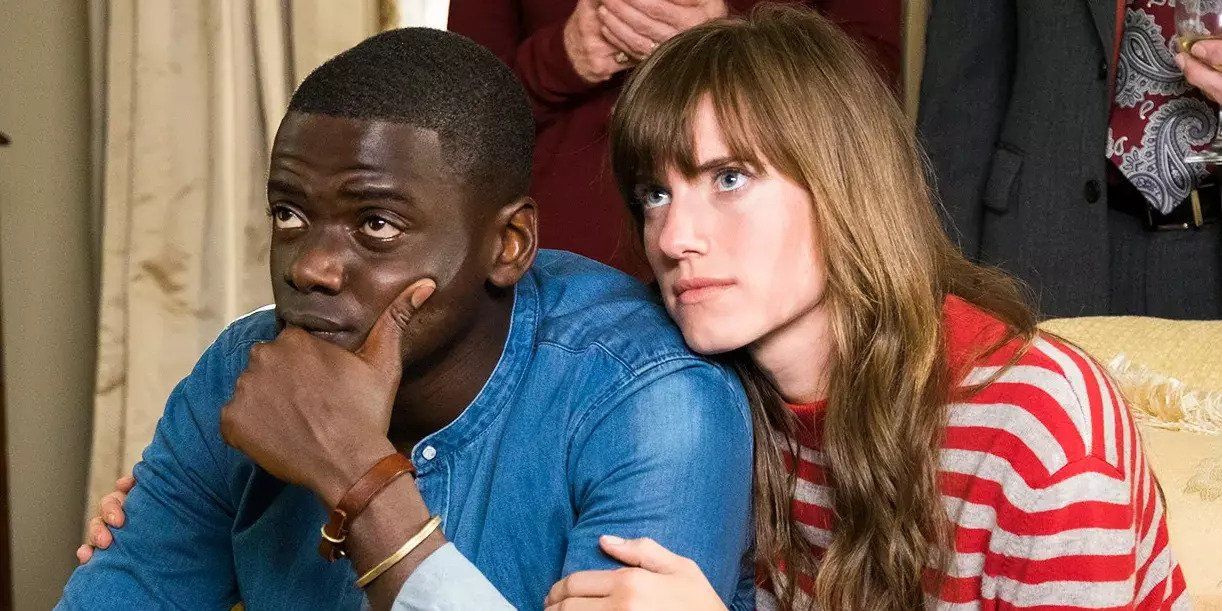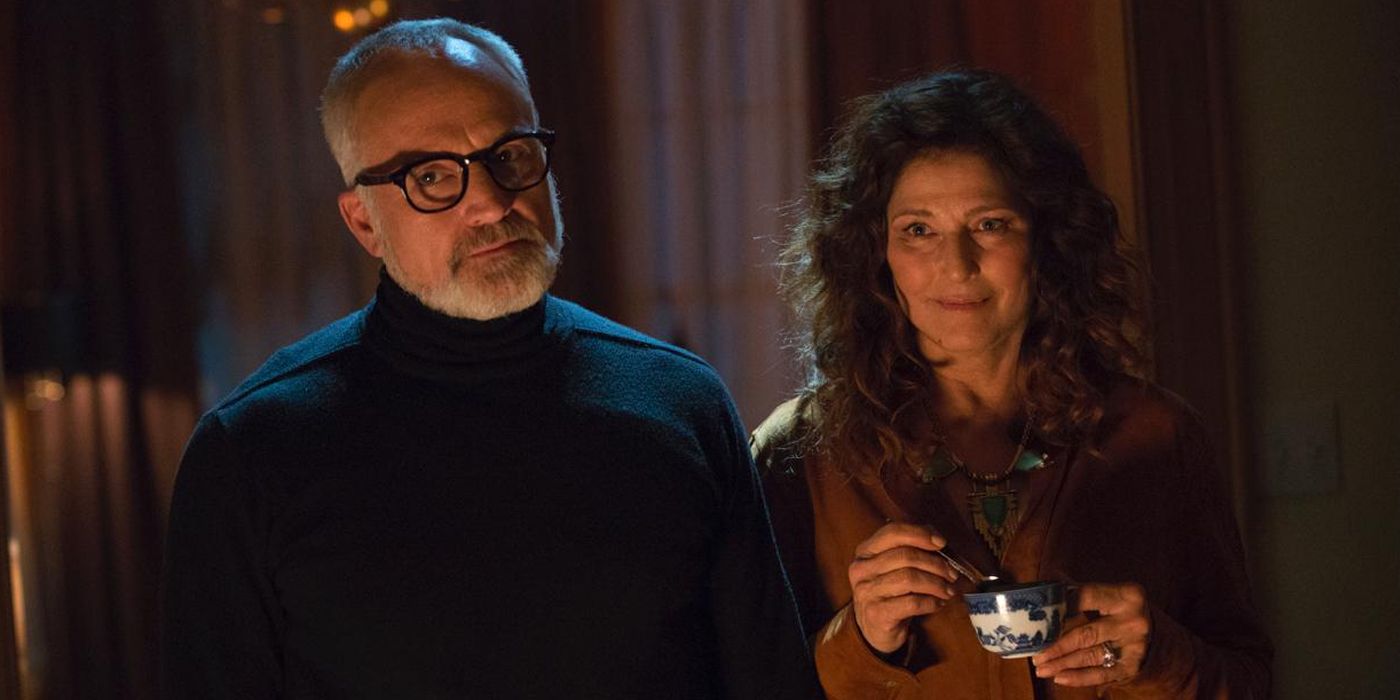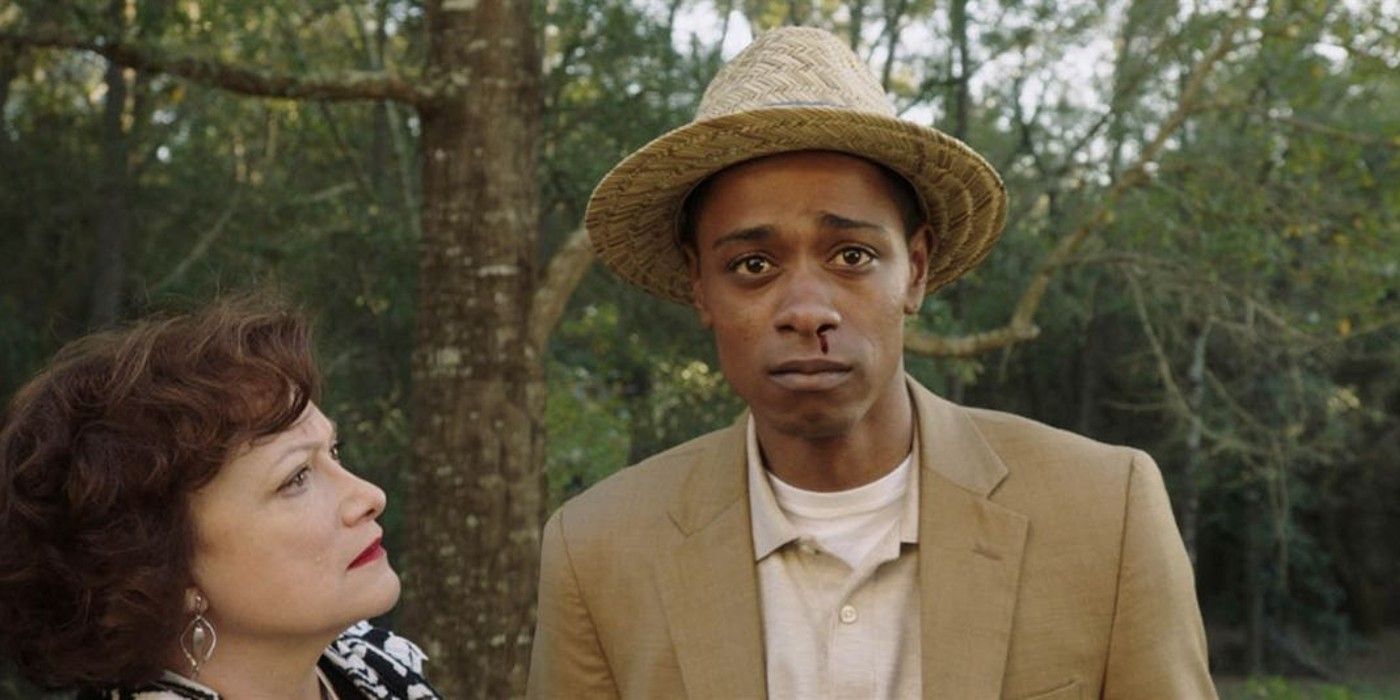CBR's 31 Days of Halloween is a daily feature highlighting our staff's favorite horror movies to watch during the month of October. Reader, beware - you're in for a scare!
One of the things that makes horror such an evergreen genre is its ability to reflect the fears and anxieties of society, providing a space where people can explore and analyze what terrifies them. However, mainstream horror has been reluctant to broach the subject of racism. A few scary movies have made bigotry a staple of their stories -- Tales From the Hood, The People Under the Stairs and Beloved, to name a few -- but rarely does a major motion picture blend spookshow scares with the very real insidious forces of prejudice and discrimination.
2017's Get Out changed that. Written and directed by Jordan Peele, primarily known for his comedy work with Keegan-Michael Key at the time, Get Out made the creeping paranoia of life as a marginalized person in America the backbone of its story. And in doing so, it created a social thriller for the ages and a modern classic.
What Is Get Out About?
Get Out follows Chris Washington (Daniel Kaluuya), a young photographer planning to spend the weekend with his girlfriend, Rose Armitage (Allison Williams), at her family's lavish upstate mansion. Rose is excited, but Chris is concerned. Rose has never brought a Black man home before, and Chris knows that no matter how progressive she claims her folks are, old attitudes can sometimes flare up in people.
Upon their arrival at the Armitage home, Chris learns that Rose's parents, brother (Caleb Landry Jones) and old money friends are exactly what he expected: earnest and well-meaning but utterly incapable of interacting with a Black person without coming across as ignorant, or, in rare instances, hostile. However, what has Chris more concerned is what few other Black people are in the Arbitrages' orbit. Their behavior is strange, stilted and foreign -- as if something's been done to them.
Why Jordan Peele's Get Out Is Mandatory Halloween Viewing
There are many things that make Get Out an exemplary film, but one of its most brilliant touches is the way Peele plays with audience expectations. He knows full well that the viewers are expecting a sinister twist and will spend the first half waiting for the other shoe to drop. In this way, Peele forces the viewer to identify with Chris's situation: cautious to the point of paranoia because he has to be. For many people, living as a minority in America means developing an ear for coded language and key behaviors that can betray a person's bigoted intent. Chris doesn't know he's in a horror movie, but he knows he's in a precarious situation, and his fortunes can turn at any moment.
At the same time, Peele knows how to subvert horror tropes to tremendous effect, starting with the film's opening scene. In the middle of the night, Andre Hayworth (LaKeith Stanfield) wanders the suburbs upstate, looking for a way back to the city. He's soon stalked by a driver blasting "Run, Rabbit, Run" by Flanagan & Allen. Andre tries to play it cool and avoid any trouble, but the driver ambushes him, strangling him unconscious and throwing him into the trunk of his car before driving off into the night with no one the wiser. It's a brilliant scene that sets the tone of the movie perfectly.
In horror, suburbs are often bastions of safety and stability that exist to be terrorized by bogeymen like Freddy Kruger or Michael Myers. However, for many Black Americans -- especially from more urban environments -- the suburbs are dangerous ground. The phenomenon known as the White Flight of the 1950s and '60s saw suburbs rapidly develop as havens for Caucasian conformity, with segregation strictly enforced by practices like redlining, mortgage discrimination or just police violence. Although some of these apartheid practices are no longer prevalent, the sentiment behind them still exists across the country, and that scares Chris more than any masked slasher or dream demon ever could.
However, Get Out isn't all tension and atmosphere. Once the film's twist is revealed, the third act becomes a taut action thriller as Chris tries to flee the Armitage home. It's not only a masterfully shot and edited sequence of feral violence but also a tremendously satisfying one, as Chris asserts his personhood against people who, despite their pretenses, refuse to acknowledge it. It all culminates in one of the most cheer-worthy endings to a horror movie in recent memory, making Get Out not just a masterwork of tone but also a visceral, brutal statement against bigotry and prejudice.
How to Watch Get Out - Is it Streaming?
Peele has since followed up Get Out with Us in 2019 and Nope in 2022, distinct features that prove him as one of the preeminent voices in horror. However, Get Out remains arguably his strongest work, a tense thriller brimming with social commentary and a gut-punch of a finale for the ages. And for those seeking such an experience, Get Out is available to stream on Spectrum and rent on most major platforms.




